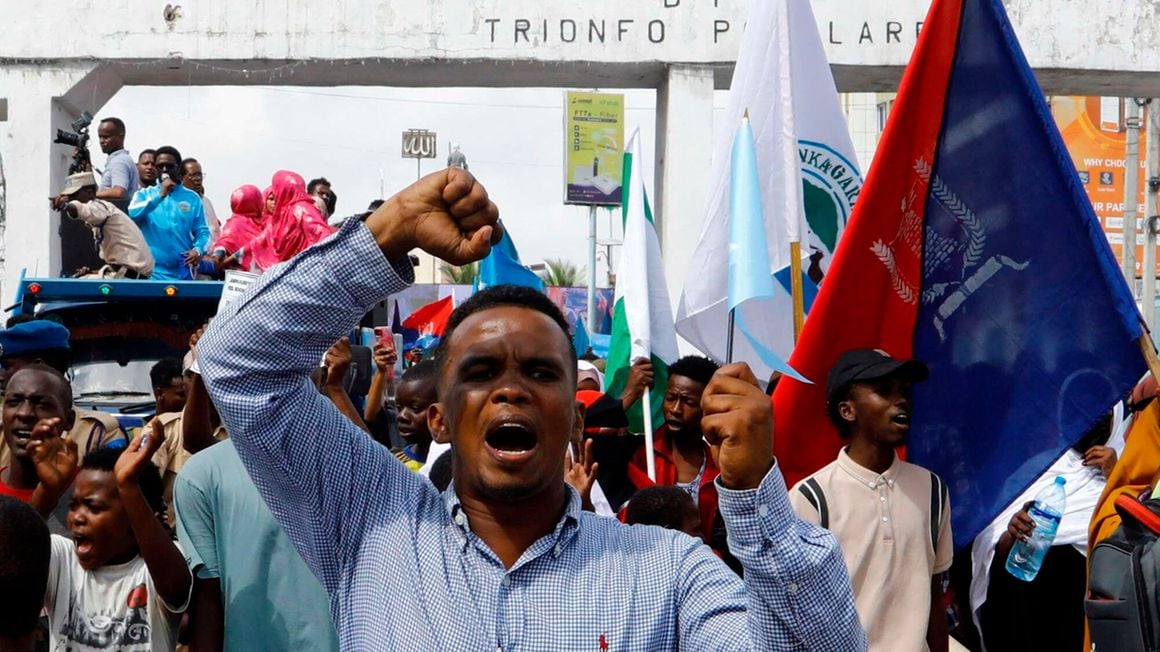Rising tensions between Somalia and Ethiopia over alleged arms smuggling amid fragile security concerns has escalated diplomatic tensions between the two countries.
The accusation came on Tuesday, just a day after an Egyptian warship docked in Somalia’s capital, Mogadishu, unloading a significant shipment of military aid— the second such delivery since a joint security agreement was signed between Somalia and Egypt in August. These developments have heightened concerns about the flow of arms into Somalia, a country long plagued by insurgencies, with fears that weapons could end up in the hands of Islamist militants, particularly al-Shabaab.
At the heart of this diplomatic rift is Ethiopia’s concern that arms supplied by external forces, including Egypt, could destabilize the region. Ethiopia’s Foreign Affairs Minister, Taye Atske Selassie, voiced apprehension that these arms shipments would only worsen the already fragile security situation in Somalia. “External forces may exacerbate the fragile security and end up arming terrorists in Somalia,” Selassie was quoted as saying by the Ethiopia News Agency. Ethiopia, which has thousands of troops stationed in Somalia to combat al-Shabaab and other extremist groups, is especially wary of arms flowing into Somalia without proper control.
Responding to Ethiopia’s concerns, Somalia’s Foreign Minister, Ahmed Moalim Fiqi, accused Ethiopia of attempting to deflect from its own alleged wrongdoing. “Ethiopia’s motivation behind these defamatory statements is to conceal its illegal smuggling of weapons across the Somali borders, which are falling into the hands of civilians and terrorists,” Fiqi told Reuters. However, he did not provide any evidence to substantiate this accusation. Somalia has previously accused Ethiopia of smuggling arms into Puntland, a semi-autonomous region in Somalia, further straining their relations.
The strained ties between the two nations are complicated by Ethiopia’s ongoing plans to construct a port in Somaliland, a breakaway region of Somalia that seeks full sovereignty. Ethiopia’s move to negotiate the port deal in exchange for potentially recognizing Somaliland’s independence has enraged Mogadishu, which sees the region as an integral part of Somalia. The Somali government has threatened to expel Ethiopian troops stationed within its borders if the port agreement is not scrapped by the end of the year.
This rift is not only about arms or territory but also about alliances. Somalia’s strengthening relationship with Egypt has been a particular point of contention for Ethiopia. Egypt has long been at odds with Ethiopia over the construction of the Grand Ethiopian Renaissance Dam (GERD), a massive hydroelectric project on the Nile River. Egypt, which depends heavily on the Nile’s water, fears that Ethiopia’s dam will reduce its water supply. As a result, Cairo has sought to build stronger alliances with Ethiopia’s regional neighbors, including Somalia, as part of its strategy to counter Ethiopian influence.
The conflict between Somalia and Ethiopia also draws attention to broader regional security concerns. Al-Shabaab, an al-Qaeda-affiliated insurgent group, continues to destabilize Somalia, launching attacks on both civilians and military installations. Analysts warn that the influx of arms, whether through legal channels or smuggling, increases the risk of these weapons falling into the hands of militants. Rashid Abdi, a regional analyst with the Sahan Research think tank, cautioned that the possibility of arms ending up with al-Shabaab is particularly high. “Al-Shabaab has been a major beneficiary of weapons in the past, especially through raids on enemy bases,” he said, pointing to the group’s ability to capture and repurpose military hardware.
In December 2022, the United Nations Security Council lifted a three-decade-long arms embargo on Somalia, further complicating the security landscape. While the lifting of the embargo was seen as a way to help the Somali government better equip its forces against insurgencies, it also raised concerns about the potential for arms to be diverted to non-state actors, including terrorists.
The growing diplomatic friction between Somalia and Ethiopia, compounded by the risk of weapons reaching militant groups, adds another layer of complexity to an already volatile region. With both nations entrenched in their respective positions, the situation underscores the fragile security architecture of the Horn of Africa. If unresolved, these tensions could lead to greater instability, further hampering efforts to combat terrorism and improve governance in Somalia.
As both countries trade accusations and the threat of further military escalation looms, the international community will be watching closely to see how these developments affect not only Somalia and Ethiopia but the wider Horn of Africa region, which remains a critical hotspot for both African and global security interests.













Leave a comment